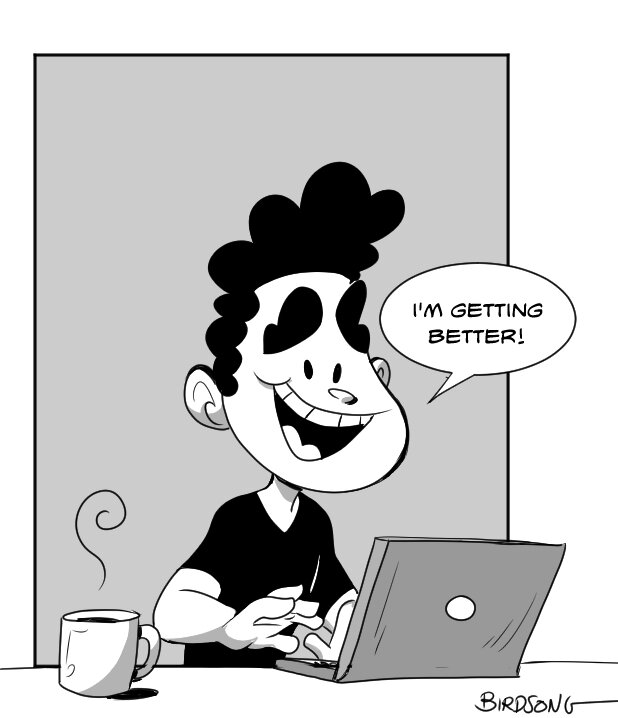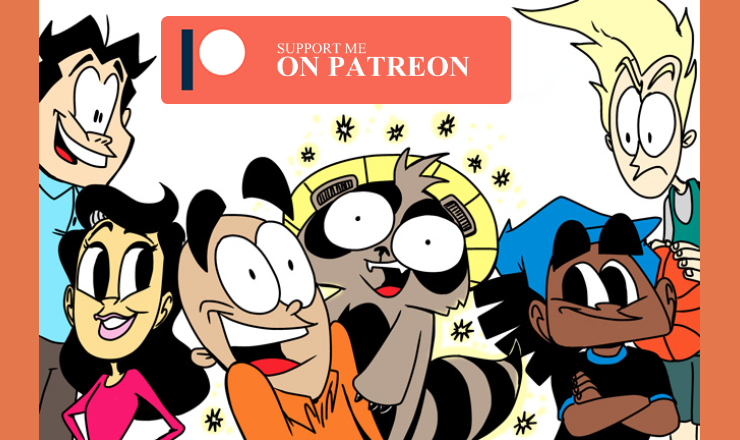Why You Should Practice The Boring Stuff When You’re Young.
/And 3 ways to love the fundamentals and master your craft when you’re older.
Photo by Kaizen Nguyễn on Unsplash
“I don’t need to practice [insert art skill]. This is just my personal style.”
How many times have I heard that from my art students? Way too many times.
If you want to get good, you have to learn to love practicing the fundamental skills of your craft when you’re young. Whether that’s in visual art, music, sports, or, yes, even writing.
It doesn’t get easier with time.
Getting good means knowing what good means. And that takes experience.
You learn by growing through repetitive practice in stuff you, at a young age, can’t see as important right now. Passing your lack of experience off as a style trait is lazy and misguided.
When you’re in school and even into your twenties, you have more energy than you know what to do with. Why make excuses for putting in the work as a creative? I bet it’s because you don’t have a coach riding your a$$ every day to write for two hours, or practice drawing portraits.
You can bet athletes hire or must attend a certain number of practices each week to stay in shape and keep their sporty skills in tip-top condition. I also bet there’s no way they would practice that much without someone holding them accountable.
But what if you can’t hire an art or writing coach? You’ve got to be the one who motivates yourself to keep going no matter how old you are.
Once you get decent at the basics, we can talk about flipping them on their head and claiming you can practice less because it’s your style. At least, that’s what I say when teaching art to middle school students. They want it to be easy right now, and it doesn’t work like that, unfortunately.
You may even be older and know how important it is to practice but still can’t get yourself to work on the boring stuff you know will grow your skills.
One thing young people don’t understand is how heavy responsibilities, like raising children, and dealing with surprise health issues, not to mention being just plain tired, make it so much harder to put in time practicing skills as you age.
No worries. All it takes is a mindset shift and a little creativity. Treat it like you’re young—fresh-faced and open to discovering more of how basic skills can improve your work.
You don’t have to love practicing the fundamentals, but you have to work on them regularly to improve.
Here’s what I tell young creatives that can also help my over-forty crowd, who need help consistently doing the things to improve their work.
Make it a game to get fully engaged
Creating your art, drawing or writing should be something you enjoy no matter what, right? I’ll give you a hardy WRONG on that one! Yes, making whatever you feel like when you’re in the mood is enjoyable, but if you want to improve, you have to work even when you’re not feeling it.
Gamify your practice times to incentivize learning the boring stuff that makes you cringe. Use your creativity to make learning the basics fun, and it will be easier to want to sit down and get to work.
Let’s say you need to improve your skills in drawing hands, and what artist doesn’t? You sit down and challenge yourself to draw five hand gestures in your sketchbook in twenty minutes. Set a timer and see if you can beat it.
Figure drawing practice within thirty minutes.
Even if you’re practicing playing scales on an instrument—not the most fun activity but important—use a similar method. How many can you do in a limited time? Can you play them in several different rhythms like a song?
Becoming a better writer takes, well, writing often. Challenge yourself to see how many days a week you can write for a specific amount of time. Try one hour a day at the same time of day. Or, give yourself a word count, like 500 words each day, mark a calendar when you complete them, and on Sunday, see if you’ve won.
The act of spicing up your fundamentals will help make sitting down to do them more fun. Unfortunately, gamifying is not enough. Naturally, we all want something when we win.
Reward yourself sweetly to make winning fun
When you reach your gamified goal, reward yourself with a treat — whatever that is for you. I love eating chocolate chip cookies. Sweet treats are a solid motivator for me, and I feel like I truly won an award when I get a treat afterward.
The other day, it was hard for me to focus on writing. So, I got some of those Mini Chips Ahoy cookies as motivators. They’re small so I could eat one after ten minutes of writing. Chewing on it with a smile as I write more, then after ten minutes put another in my mouth. Writing and eating treats as I go.
Not great for my waistline, I know, but I got through finishing an article. And drank a big glass of almond milk after.
You may decide you can’t watch your favorite TV show until you’ve drawn something for an hour or two. Pick the things you really do not feel like practicing, and add your best reward treat to completing them successfully.
I enjoy knowing I can draw whatever I want if I put in a certain amount of time on fundamentals. That could mean drawing three figure drawings, then a funny cartoon character.
The harder and more boring the skill, the better the reward. You’ll be getting fundamental practice easier and more often.
Drawing bunnies is a lot of fun after figure drawing practice.
Upgrade your thinking to always keep going
If you’re dedicated to your chosen art form, you must learn to work with the difficult and boring parts as well as what’s enjoyable. They do go hand in hand. Even if you’re doing it mainly for fun, you’ll want to get better, telling yourself improvement doesn’t matter is a waste of time.
When you get up to go to work or school, you have to mentally prepare for the day. Why? Because it’s important. You know there will be a mix of great and not-so-great, but you take it on as a part of the experience. Do the same with your art and creative work.
Know it will be hard at times, especially when you’ve got family or health challenges, but the hard stuff makes you better and pushes you ahead. If it feels too easy, too fun, you’re probably not growing. Look for the obstacles. Find ways to work on the difficult parts because you know you need it to improve.
Doing this sort of mind shift, especially when you’re young, will help you make it a habit you continue into older age. You set a precedent that growing as a creative person takes doing the parts you enjoy and the parts that help you grow.
Trying to get yourself to do what you know you must when you’re older is harder. You become more set in your ways, and life responsibilities make it easier for you to make excuses not to create. When you have a mindset of creating regularly set in your brain, getting started, even if times are tough, is easier.
When you seek out creative challenges, find fun ways to work on them regularly, and reward your accomplishments, the boring stuff won’t be boring anymore.
Want more? If you’re struggling with doing original work, click here to join my (free) email list, and through comics, articles about culture, and living your truth, you can upgrade your mindset and share your art with the world.
































